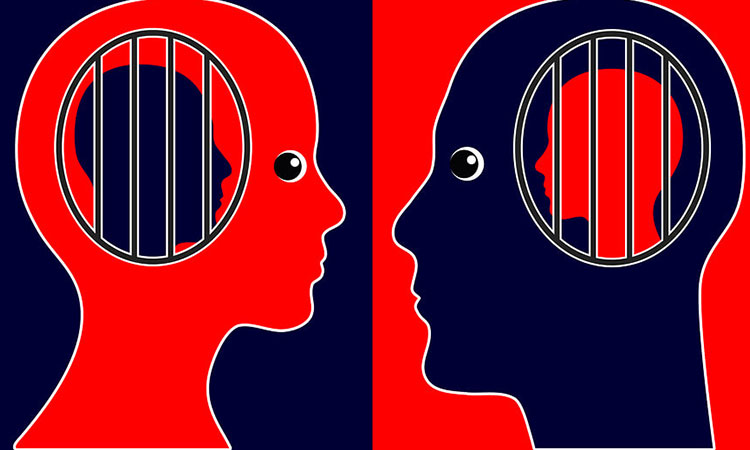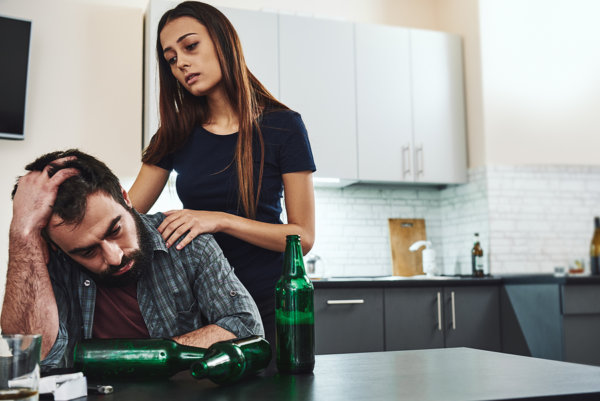
Codependent Behavior and Addiction – Codependency is hallmarked by a relationship in which one person has profound emotional needs, and their partner is forced to contribute a disproportionate amount of his or her time responding to those needs, frequently to the detriment of the life of one or both partners and/or other significant relationships.
Codependency can result in a downward spiral in which one partner actively attends to and enables the emotional challenges of the other. This enabling behavior can make it easier for the loved one to continue behaving in toxic and problematic ways.
What Is Codependency?
There are two members in a codependent relationship—the manipulator and the enabler. The actual codependent person in the relationship is the enabler. In most cases, codependent enablers end up in relationships with manipulators, leading to what is referred to as a codependent relationship.
A codependent enabler is usually a somewhat passive person who, either consciously or unknowingly, enables the manipulator’s problematic or addictive behavior. The enabler typically engages in submissive behavior in which he or she relinquishes a great deal of their own identity and neglects their own needs in order to fulfill the manipulator’s demands.
Codependency then leads to a cycle of harmful behavior that truthfully helps no one, and can eventually destroy relationships and lives.
Symptoms of Codependent Behavior
Symptoms of codependent behavior include the following:
Poor Self-Esteem
The codependent enabler may feel unloved or worthless aside from their role in the relationship. They depend on fulfilling the needs of others and other external reinforcements to feel positive self-worth.
People-Pleasing
The opinions of others have a significant amount of weight for the codependent person, who will often do anything to ensure others have a positive perception of him or her. The person may feel a tremendous amount of guilt or exhibit an inability to stick up for themselves or say “no” to others.
Caretaking
The person feels a fundamental need to take care of others, often at the expense of his or her own needs. In many circumstances, the enabling individual doesn’t feel secure or comfortable unless they are needed for some higher purpose other than for their own self-care—this is the hallmark of a codependent person.
An Absence of Boundaries
The enabler may not have a firm sense of boundaries, either for oneself or others. These people may offer unwanted advice, feel responsible for the feelings and wellness of others, or even attempt to manipulate others themselves who can provide some level of self-assurance.
An Obsession With Relationships
Because the enabler feels defined by relationships, they may become an obsession for the person, nevermind the fact that these relationships often lack healthy emotional intimacy.
Codependency and Drug Addiction

If just one person in a codependent relationship is using drugs or alcohol, it is most often the manipulator. This person chronically manipulates those who help them get what they want, whether it’s money, shelter, alcohol, drugs, or other resources. They know they have leverage over their partner and use this fact to their benefit.
Codependency does not need to occur in conjunction with substance abuse, but it was first identified among the family members of people suffering from alcoholism. Indeed, codependent behavior is common among those who have intimate relationships with those who struggle with addiction.
Codependency can develop in a few different ways:
- Among partners who are both abusing substances
- Among close adult family members or friends of people abusing substances
- Among the children of people who are abusing substances
The codependent person in the relationship does not need to be a spouse or significant other. Often, the children of those who abuse drugs and alcohol become codependent, particularly when an addiction has progressed to the extent that the child is required to take on a caretaker role with the parent.
Negative Effects and Risks for the Codependent Enabler
If the manipulating partner is abusing substances, both partners may encounter many adverse effects and risks based on the situation. There can be severe consequences that affect family dynamics surrounding codependent relationships and also the emotional health and well-being of the enabling person.
Some of these risks include the following:
- Increased risk of also developing an addiction(s), either to substances or to activities such as gambling or sex
- Profound loss of relationships and social activity with others outside of the codependent relationship
- Inability to attend to other responsibilities outside of the codependent relationship
- Neglect of personal needs, which can result in poor health, depression, and worse self-esteem.
Negative Effects and Risks for the Codependent or Manipulator
As for the person struggling with substance abuse, the codependent relationship can also have adverse consequences on the substance use disorder itself, as well as on the potential for a positive treatment outcome (i.e., sobriety). Moreover, the codependent relationship acts as an enabling force in the manipulator’s life and may discourage them from making healthy changes.
The enabling person may genuinely want to help and support their partner, but may also fear that the other person won’t require them any longer after the addiction is resolved. This possibility may thwart any practical attempts to get help, allowing the manipulator to continue to suffer from addiction and face the corresponding physical and mental health risks it produces.
This factor can also pose a significant risk if the addicted person finally decides to get treatment. Because the enabling partner feels at least partially dependent on their partner’s addiction to maintain the relationship, returning to the relationship after treatment can increase the risk of relapse for the addicted person.
For this reason, understanding and overcoming codependent behavior should be a vital part of an individual’s treatment plan when he or she enters an addiction treatment program.
Components of Recovery From Codependency and Substance Abuse
Due to the aforementioned complications, when a person who is struggling with addiction is also in a codependent relationship, this situation should be addressed during treatment. There are several components of evidence-based treatment programs that can help both partners in the codependent relationship learn to interact in a healthy and constructive manner.
The enabling partner is usually encouraged to seek behavioral therapy to improve his or her self-esteem and ability to communicate needs and set boundaries.
Creating Boundaries
An essential element in treating codependency in addiction is learning how to create boundaries. For both the manipulator and their codependent partner, establishing boundaries can help promote a healthier relationship and increase the likelihood that both partners can recover from the challenges of a codependent, substance-abusing relationship.
Some steps to developing healthy boundaries include the following:
- Learning that having needs, preferences, and opinions that are different from the person with an addiction is normal and healthy
- Describing one’s own emotions, rather than what one believes “should” be felt
- Establishing constraints on one’s own behavior as well as the behaviors of others who are relevant
- Being able to recognize and seek the fulfillment of one’s personal needs rather than only those of others
- Valuing one’s boundaries as well as boundaries set by others
By learning to create boundaries, the codependent partner and the manipulating person can learn to develop a healthier relationship and make it more likely that treatment will be beneficial and have a positive outcome for both people.
Getting Treatment for Codependency and Addiction
For those seeking help for addiction, a full-service treatment program such as those offered by Recovery By The Sea can provide customized plans that help with the challenges associated with codependency. Using evidence-based methods, including behavioral therapy and counseling, programs such as these can help the person with addiction learn to navigate the barriers that result from codependency and improve the likelihood that he or she will be able to maintain long-term recovery.
You can reclaim your life and experience the happiness and wellness you deserve! Call us today to find out how we can help you begin your recovery journey!